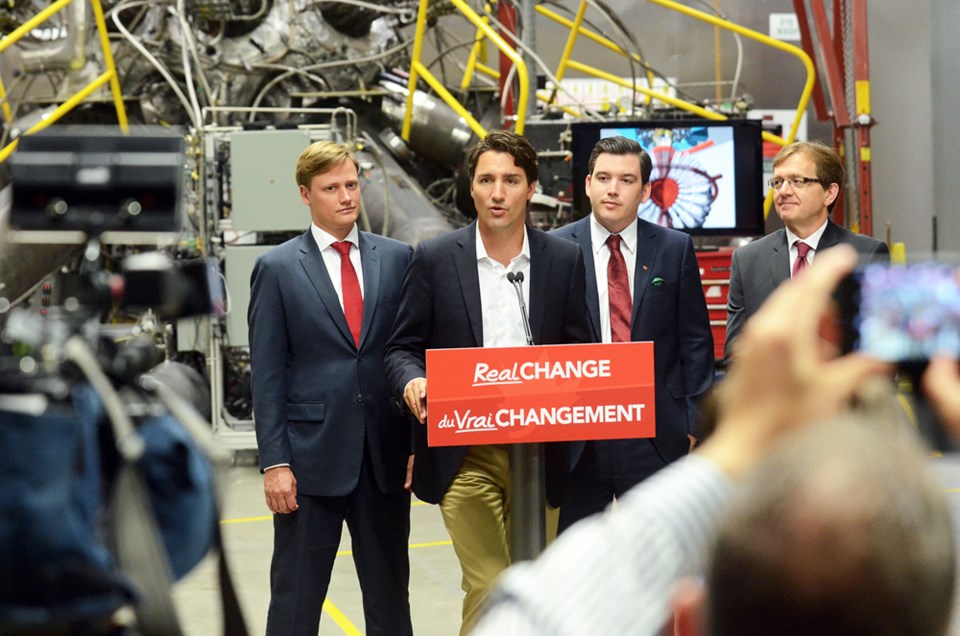The Kinder Morgan pipeline expansion plan may have a few more hoops to jump through if Justin Trudeau is elected prime minister.
The Federal Liberal leader toured Burnaby’s General Fusion Tuesday to bolster his party’s plan for the environment and the economy. He told reporters on Tuesday he’s proposing a plan of redoing environmental assessments.
“It’s obvious the Harper government’s politicization of the National Energy Board, the process around approval for projects like this, is not working, and if there’s any hope for projects like this and others to go forward, there needs to be a restoration of public trust. That’s why we’ve announced were going to engage in a new open process for all pipelines,” Trudeau told reporters.
When it comes to pipelines, Trudeau supports Keystone XL. He's thinks the Kinder Morgan expansion still needs to secure a social license from communities and the environment must be protected, but he’s opposed to Enbridge’s Northern Gateway.
On Tuesday, he said project proponents can gain social licence by engaging in a meaningful and responsible way, and government processes have to foster public trust.
When asked about Burnaby and Vancouver’s opposition to the pipeline expansion and whether he would ram the project through anyway, Trudeau said it’s not government’s role to push projects through.
“Government’s role is to create conditions in which partners, communities, proponents, industry can come together and establish what is the right path for Canada,” he said. “Everyone knows we need jobs, we need growth, but everyone also knows that that cannot come at the cost of harming our ecosystems or the environment for future generations. Getting that balance forward will be the great challenge of Canadian governments going forward, and indeed of governments around the world going forward.”
Trudeau’s visit to General Fusion, which is working on technology for a nuclear fusion generator, was to highlight alternative energy sources. The stop followed his Monday talk in Vancouver about introducing a carbon pricing plan for Canada. The plan involves inviting all provincial premiers to the 2015 United Nations Climate Change Conference and meeting within the first 90 days to start working on a strategy.
“The target we’re focused on is preventing global temperatures from rising two degrees. That is recognized as the threshold beyond which catastrophic cascading change will happen on our planet,” he said. “The way we do that is by first of all recognizing Canada has an important role to play on the world stage. For 10 years, we have been laggards if not active obstructionists around addressing climate change and emissions reductions.”
Trudeau pointed out that B.C. already has a carbon tax, and three other provinces are already putting a price on carbon.
When asked how he planned to meet those greenhouse gas emission reduction targets when the oils sands, one of the Canada’s largest emissions contributors, are poised for further expansion, Trudeau said Canada has always had an economy based on natural resources.
“We will always have a responsibility to get our resources to market. The way that is done now, is through community buy-in, social license, partnership with aboriginal communities, and world leading science,” he said.



